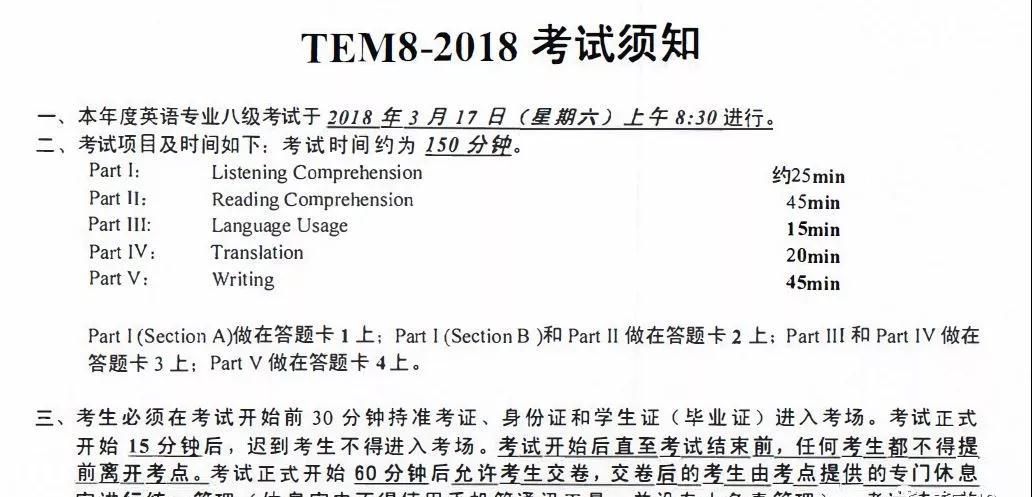2008年职称英语考试珍藏句型分析宝典(十八)b
|
... be busy V-ing ... 結構︰be busy+動名詞 說明︰此句型意為“忙著做…”。等於“be busy with+<名詞>”。 Mother is busy making cookies for the picnic. 母親正忙著為野餐做餅乾。 He was busy preparing for the exam. 他忙著準備考試。 I was busy looking up all the new words of the lesson in my dictionary. 我忙著在字典裡查本課所有的生字。 ... be used to + V-ing/N 結構︰主詞+be used to/be accustomed to+動名詞/名詞 說明︰此句型意為“習慣於…”。“<主詞>+used to-<不定詞>”是“過去常常…”;而“物+be used to-<不定詞>”則是“被用來…”的意思。 The winter was much colder than they were used to and many people died. 那年冬天比他們所習慣的更為寒冷,因而很多人死亡。 He is used to sitting up late. 他習慣熬夜。 Are you used to the weather in Taipei? 你習慣台北的天氣嗎? He is accustomed to hearing noise, because he lives right in the center of the city. 他住在市中心,所以已經習慣於噪音了。 be on the point of + V-ing 結構︰be on/upon the point/verge of+動名詞/名詞… 說明︰此句型意為“正要…”。相當於“be just about to ...”。 It started raining when I was on the point of leaving home.我正要離開家的時候開始下雨了。 On being sent to hospital, he was on the point of breathing his last. 他被送到醫院的時候已經奄奄一息了。 He was on the point of death. 他瀕臨死亡。 She was on the verge of telling all the secret. 她正想把全部的祕密講給我聽。 make a point of + V-ing 結構︰主詞+make a point of+動名詞 說明︰此句型意為“一定…;認為有必要…”。本<句型>也可以寫成“<主詞>+make it a point/rule+to-<不定詞>”。 I make a point of giving a hand to others. 我一定對別人伸出援助的手。 Whenever I go to Taipei, I make a point of visiting the National Palace Museum. 不論何時我到台北,我一定去參觀故宮博物院。 They make a point of going on a picnic every two weeks.他們一定每兩個星期去野餐一次。 to the point of V-ing ... 結構︰…to the point of+動名詞… 說明︰此句型意為“到…的程度”。 To regret one’s errors to the point of not repeating them is true repentance. 對自己的錯誤後悔到不致重犯的程度是真正的後悔。 She hates him to the point of not talking to him. 她討厭他到不和他講話的程度。 They argued to the point of fighting with each other. 他們爭吵到打架的程度。 do a little + V-ing 結構︰do+a lot of/a little/any/the+動名詞 說明︰此句型意為“做…”。可以用 a lot of(許多),a little(=some 一些),any(任何的),the 等字。 I can do a little dancing. 我可以做一點舞蹈動作。 She helped her mother do the washing. 她幫她媽媽做清洗的工作。 He has done a lot of traveling. 他做了很多的旅行。 with the + V-ing of + N 結構︰with+the+動名詞+of+名詞 說明︰此句型意為“隨著的…”。若<動名詞>有相對的<名詞>,則用<動名詞>或<名詞>都可以。 With the coming of Easter, winter ends and spring comes. 隨著復活節的來臨,冬天結束而春天來了。 With the inventing of the computer, society seems to have changed greatly. 隨著電腦的發明,社會似乎已經大大地改變了。 With the setting of the sun, night comes silently. 隨著太陽的落下,夜晚悄悄地來到。 spend ... (in) V-ing 結構︰主詞(人)+spend+時間+(in)+動名詞… 說明︰此句型意為“…花/用若干時間做…”。要用人做<主詞>。等於“It takes+時間+to-<不定詞>”。 He spent his last years (in) teaching and editing earlier writings. 他把晚年用在教書和編纂以前的著作。 How much time do you spend practicing English everyday? 你每天花多少時間練習英文? He is going to spend his last years writing a book on the history of Chinese literature. 他打算用晚年寫一本中國文學史。 She spends too much time (in) dressing herself. 她用太多的時間裝扮自己。 He spent much of his spare time roaming about the streets.他把大部分的閒暇時間用來逛街。 |








